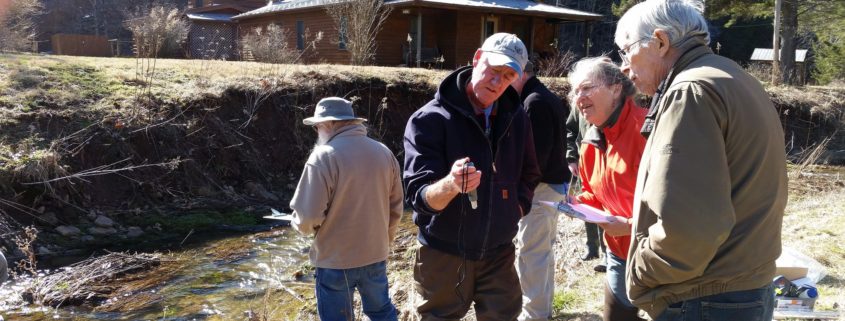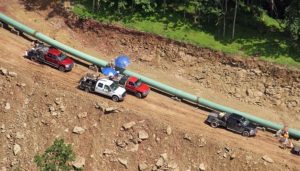How Pipeline Monitoring Works
Over the past five years West Virginia has experienced a boom in shale gas development. Now, the energy industry is seeking to build new major natural gas pipelines to move the produced gas to market.
To respond to this threat to water quality TU and WV Rivers are training volunteers to monitor water quality along pipeline routes as part of the WV-VA Water Quality Monitoring Program. The pipeline monitoring protocol is designed to identify and minimize potential impacts from pipeline development on sensitive water, fish and wildlife resources.
Phase 1: Conduct water quality monitoring before pipeline construction begins to establish baseline watershed conditions.
Phase 2: Conduct water quality monitoring and visual reconnaissance during pipeline construction to identify potential pollution events and assess temporary erosion and sedimentation best management practices.
Phase 3: Conduct water quality monitoring and visual reconnaissance after pipeline construction is completed to identify potential pollution events and assess permanent erosion and sedimentation best management practices.
If you’d like to be notified of upcoming volunteer training opportunities sign-up here.




